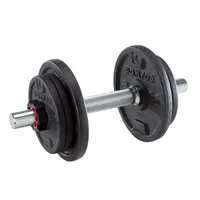This beginner strength training workout builds muscle all over with just six moves
Build muscle and boost your strength with just a couple of dumbbells

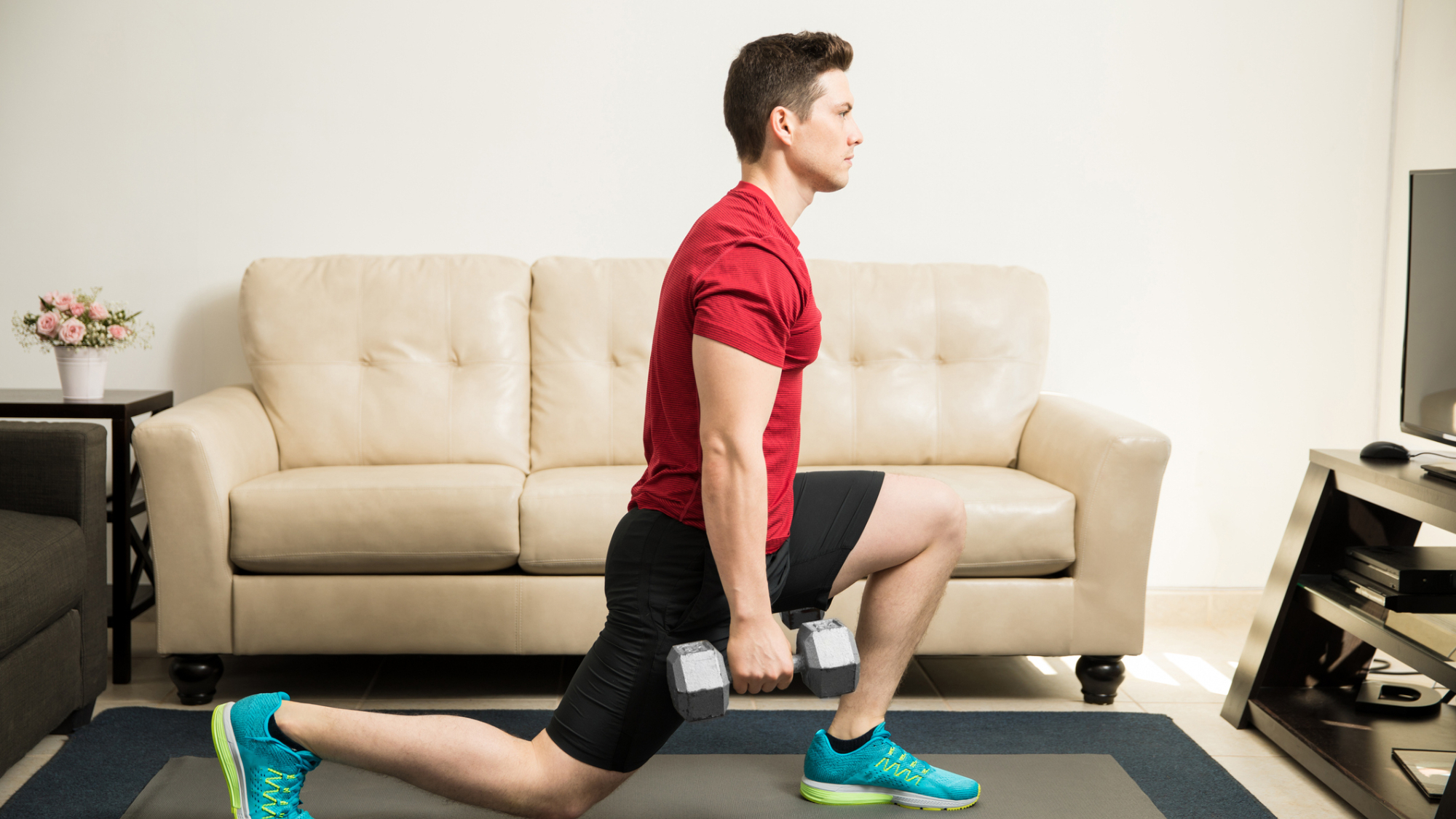
Start your week with achievable workout ideas, health tips and wellbeing advice in your inbox.
You are now subscribed
Your newsletter sign-up was successful
Owning a set of dumbbells opens the door to hundreds of strength-boosting moves, like squats, curls and presses. But if you're new to strength training, you might not know which exercises to focus on—that's where this routine comes in.
Personal trainer Alasdair Nicoll (an expert tutor at The Fitness Group) has programmed a full-body strength training workout that uses six simple moves. The efficient session challenges you to execute each of the five main movement patterns; push, pull, squat, hinge and lunge.
These movements form the basis of most everyday actions, like bending down to tie your shoes and picking up your shopping. By incorporating them into your workout, you're effectively doing some functional strength training, which will prepare your body for the trials of everyday life—and you'll work every major muscle group, too.
Decathlon 22lb adjustable dumbbell: was $59.99, now $25 at Target
Save $34.99 Black Friday is only a few weeks away but we're already seeing some good discounts on workout gear. This cheap adjustable dumbbell set can be adjusted from 2kg (4.4lb) to 10kg (22lb), thanks to its removeable weight plates. It also boasts quick clip collars to save you time when changing the load.
How to do Alasdair Nicoll's full-body dumbbell workout
Total rounds: 3
- 1. Goblet squat - 12-15 repetitions
- 2A. Push-up - 12-15 repetitions
- 2B. Dumbbell bent-over row - 12-15 repetitions
- 3. Dumbbell Romanian deadlift - 10-12 repetitions
- 4. Dumbbell reverse lunge - 10-12 repetitions on each side
- 5. Low plank - max hold time
Perform three sets of each of the exercises above for the listed number of repetitions, resting 30-45 seconds between sets (you can find full explainers of each move below).
Start by performing one set of 12-15 goblet squats, rest for 30-45 seconds, do a second set of 12-15 goblet squats, take another 30-45-second breather then end with a final set of 12-15 squats. After this, you're ready to move on to the next exercise.
The only exceptions to this format are the second and third exercises (push-ups and dumbbell bent-over rows, labeled 2A and 2B) which are performed as a superset. This means they're performed back to back with minimal rest in between. So you'll do 12-15 push-ups then move straight into 12-15 dumbbell bent-over rows. Only after you've finished both exercises do you take the 30-45 seconds rest.
Start your week with achievable workout ideas, health tips and wellbeing advice in your inbox.
Continue to follow this format for three rounds. If you find this workout challenging, you can make it easier by using lighter dumbbells or taking longer rests (up to two minutes) between exercises. The routine can be performed up to three times per week, as long as you leave a day to recover in between workouts.
1. Goblet squat
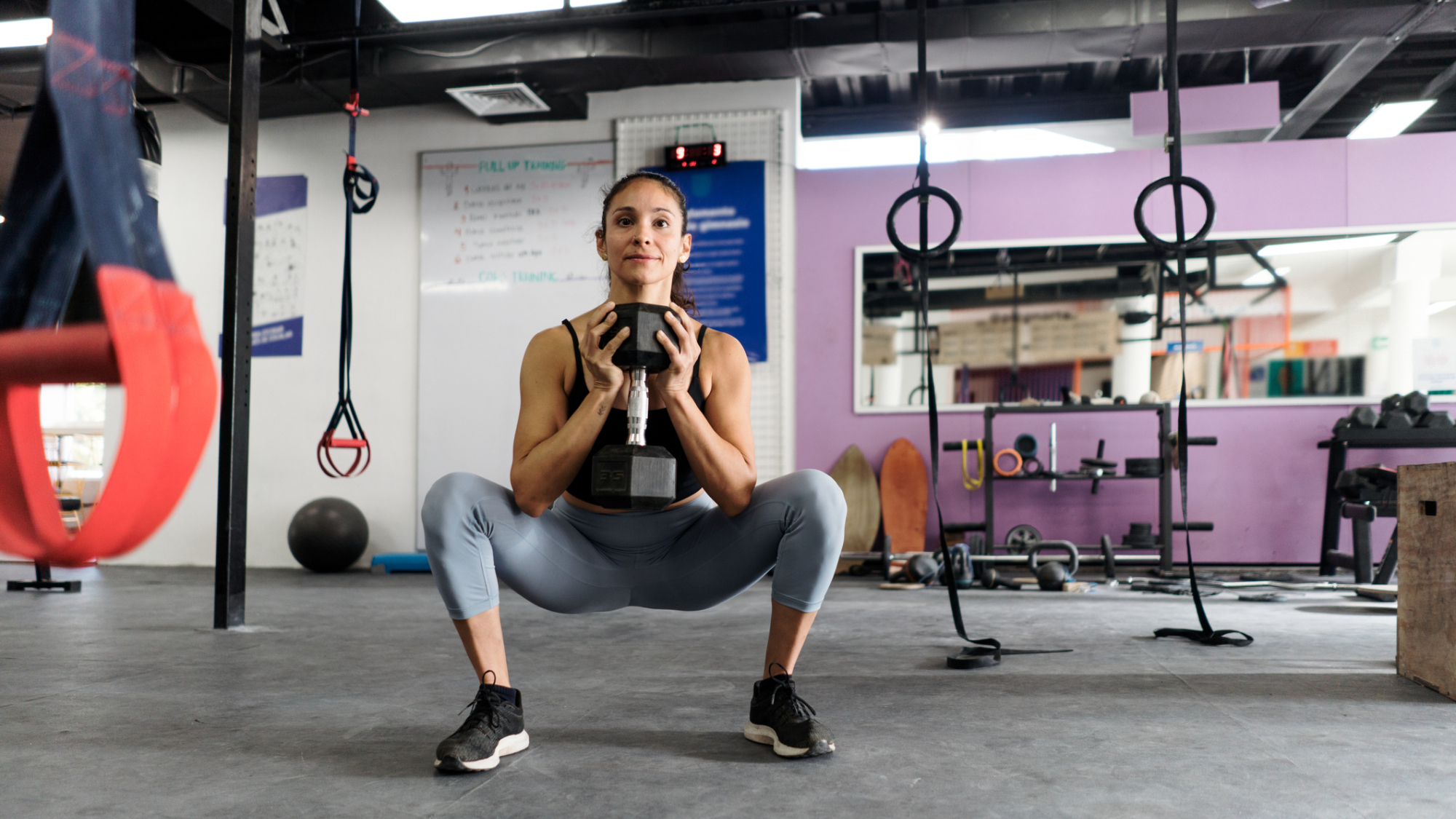
Sets: 3 Reps: 12-15
- Stand upright with your feet a little wider than hip-width apart and your toes pointed outwards slightly. Hold a dumbbell tight to the front of your chest with both hands.
- Push your hips back then bend your knees to lower your hips towards the floor, as if you were sitting down into a chair.
- When your thighs are parallel with the floor, drive through your feet to return to the starting position. Keep your chest facing forward and your spine neutral (straight) throughout this movement.
2A. Push-up
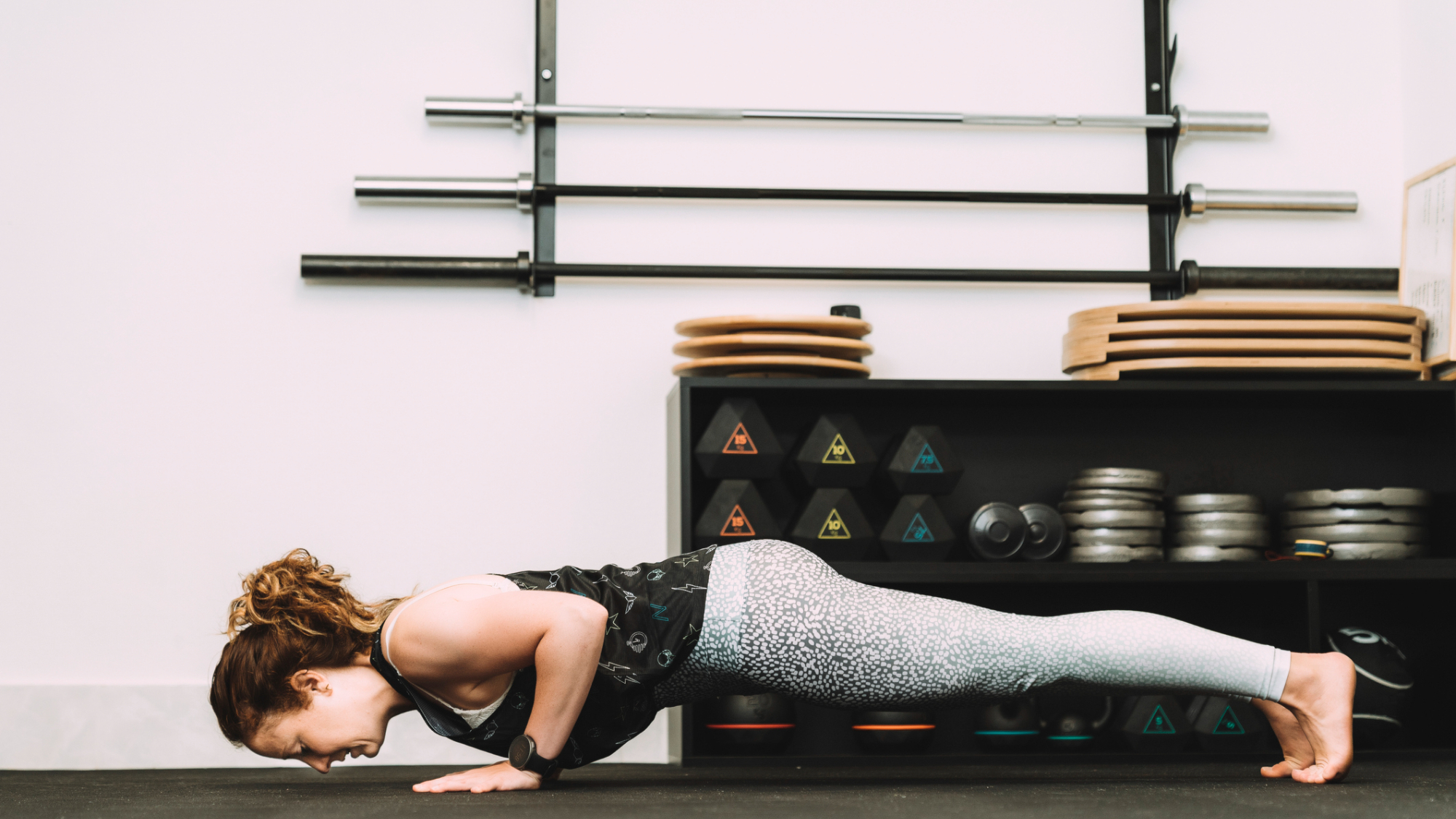
Sets: 3 Reps: 12 - 15
- Start in a high plank position, with your weight spread between your hands and toes. Your hands should be directly beneath your shoulders and there should be a straight line through your body, from your head to your heels.
- Keeping your elbows tucked to your side, lower your chest towards the floor.
- When it is about an inch from the ground, push through your hands to return to the starting position.
2B. Dumbbell bent-over row
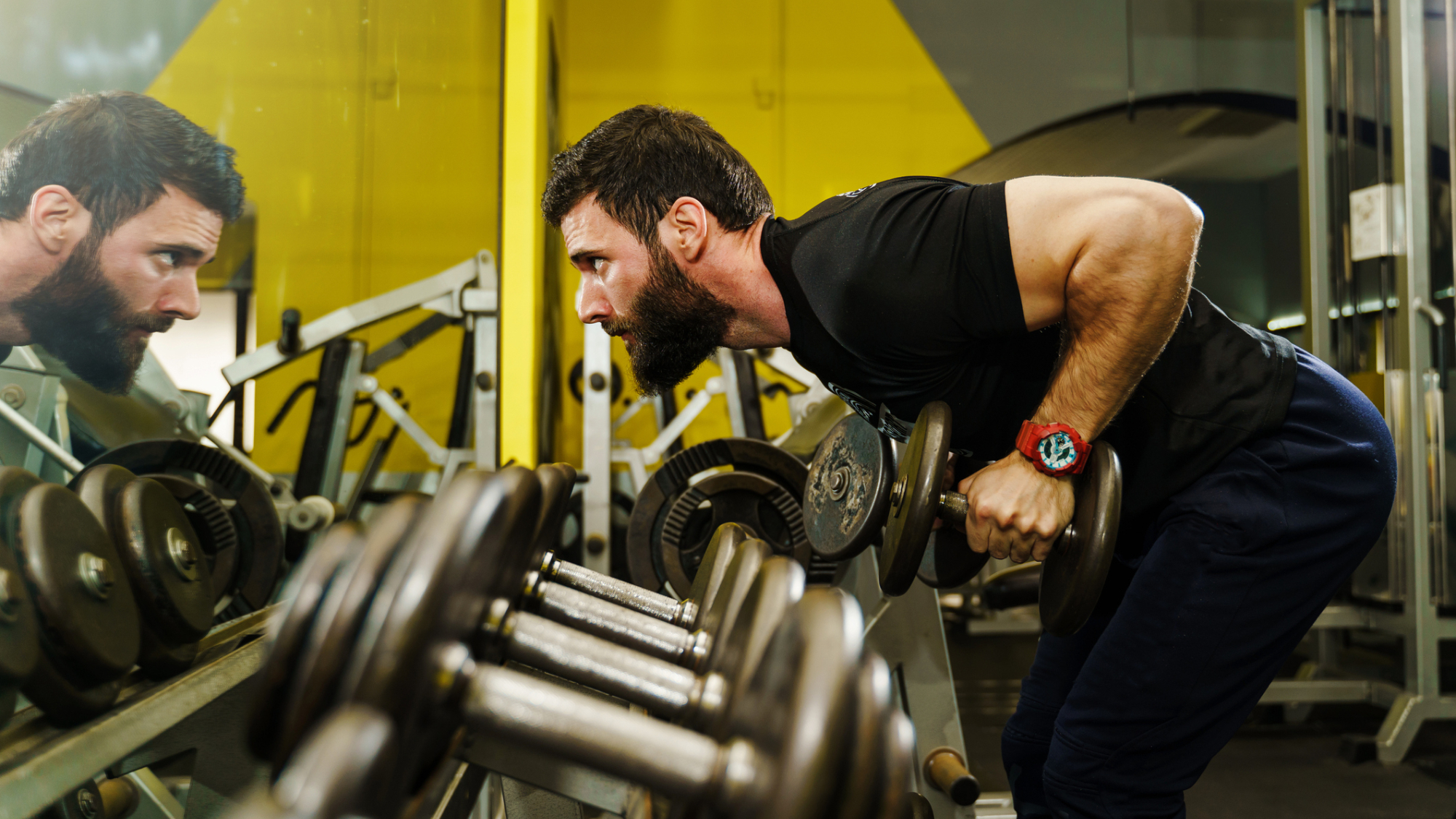
Sets: 3 Reps: 12 - 15
- Stand upright with a dumbbell in each hand then hinge forward so you're leaning over your toes, letting the dumbbells hang down towards the ground. Retract your shoulder blades (think about moving them up and back, like you were moving them towards the back pockets of a pair of jeans) and maintain a neutral spine throughout.
- Row both dumbbells towards your stomach, keeping your elbows tucked to your side.
- When they reach your torso, pause for a second then control them back down until your arms are fully extended again.
3. Dumbbell Romanian deadlift
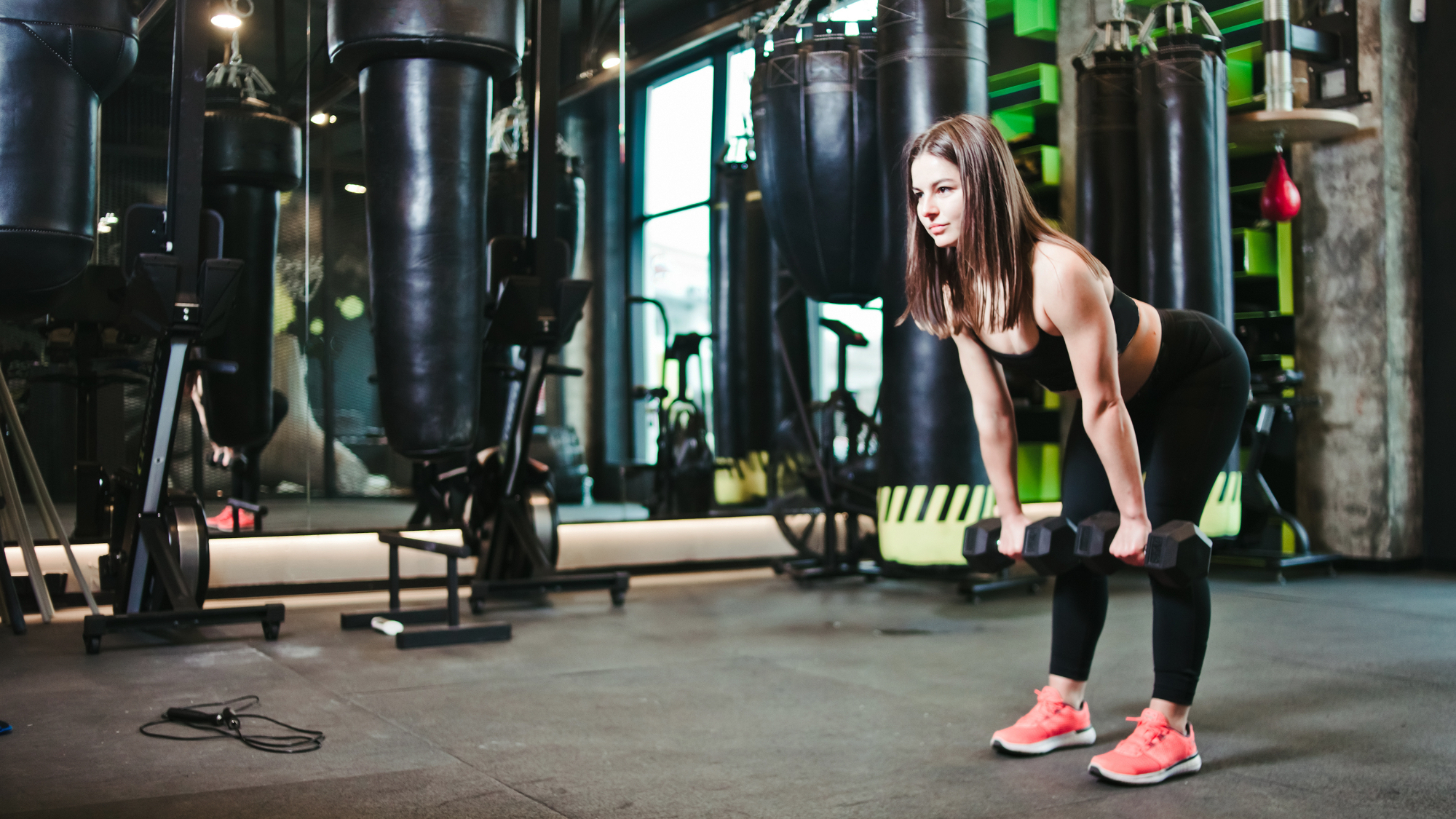
Sets: 3 Reps: 10 - 12
- This exercise starts similarly to the dumbbell bent-over row, standing upright with a dumbbell in each hand.
- Holding the dumbbells so that they rest near your thighs, with your arms extended towards the ground, hinge at the hips to lower them towards your feet. Maintain a neutral spine and a soft bend in your knees throughout. The dumbbells should always be within an inch of your body.
- When you feel your hamstrings (the muscles on the back of your thighs) tighten, retrace your steps to return to the starting position.
4. Dumbbell reverse lunge
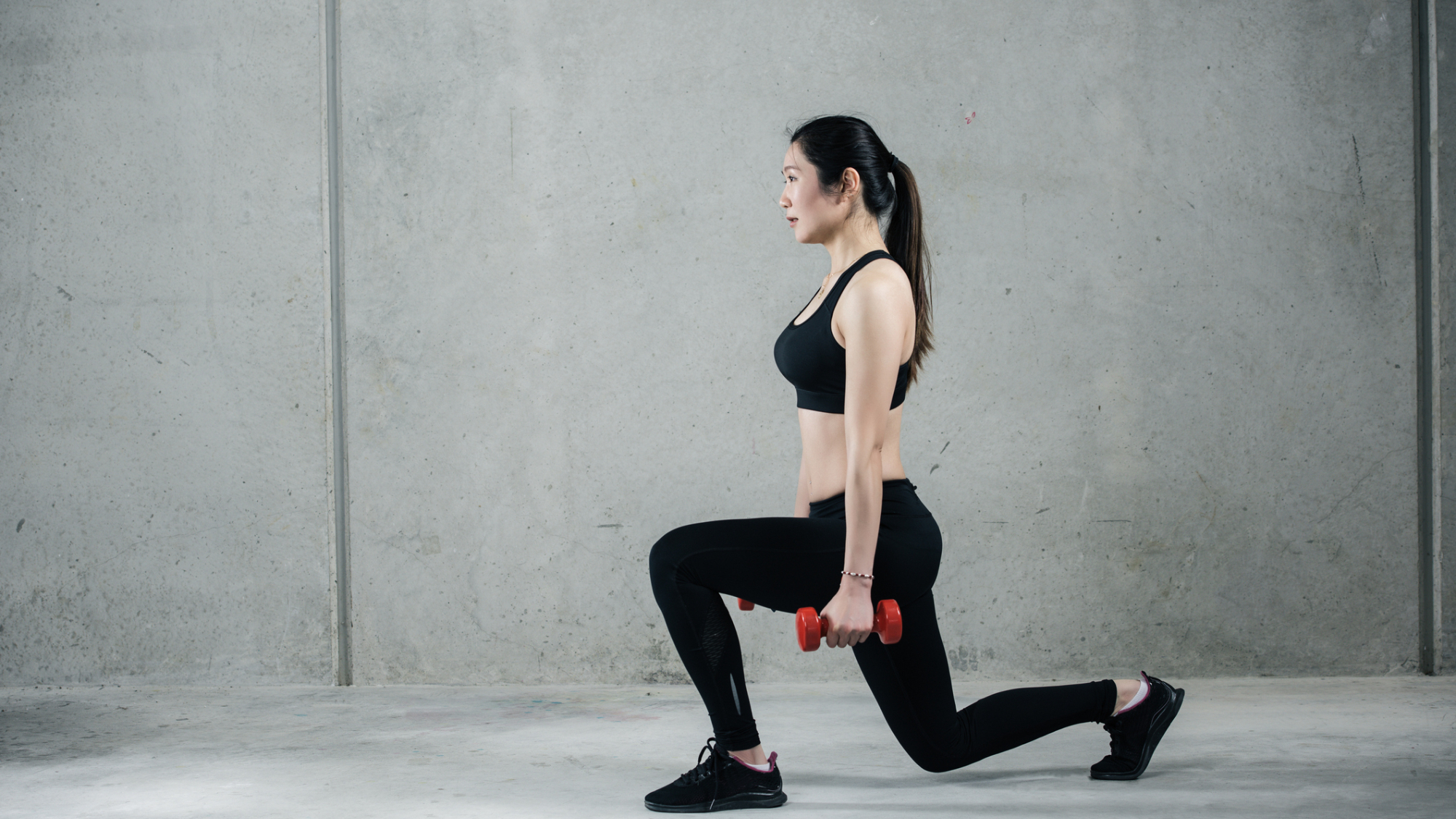
Sets: 3 Reps: 10 - 12 each side
- Stand upright with a dumbbell in each hand.
- Step backward with your right foot and lower your right knee towards the ground until both knees roughly form a right angle.
- Push through your left foot to return to the starting position. That's one repetition. Alternate which leg you step backward with for each repetition until you reach 10-12 on each.
5. Low plank hold
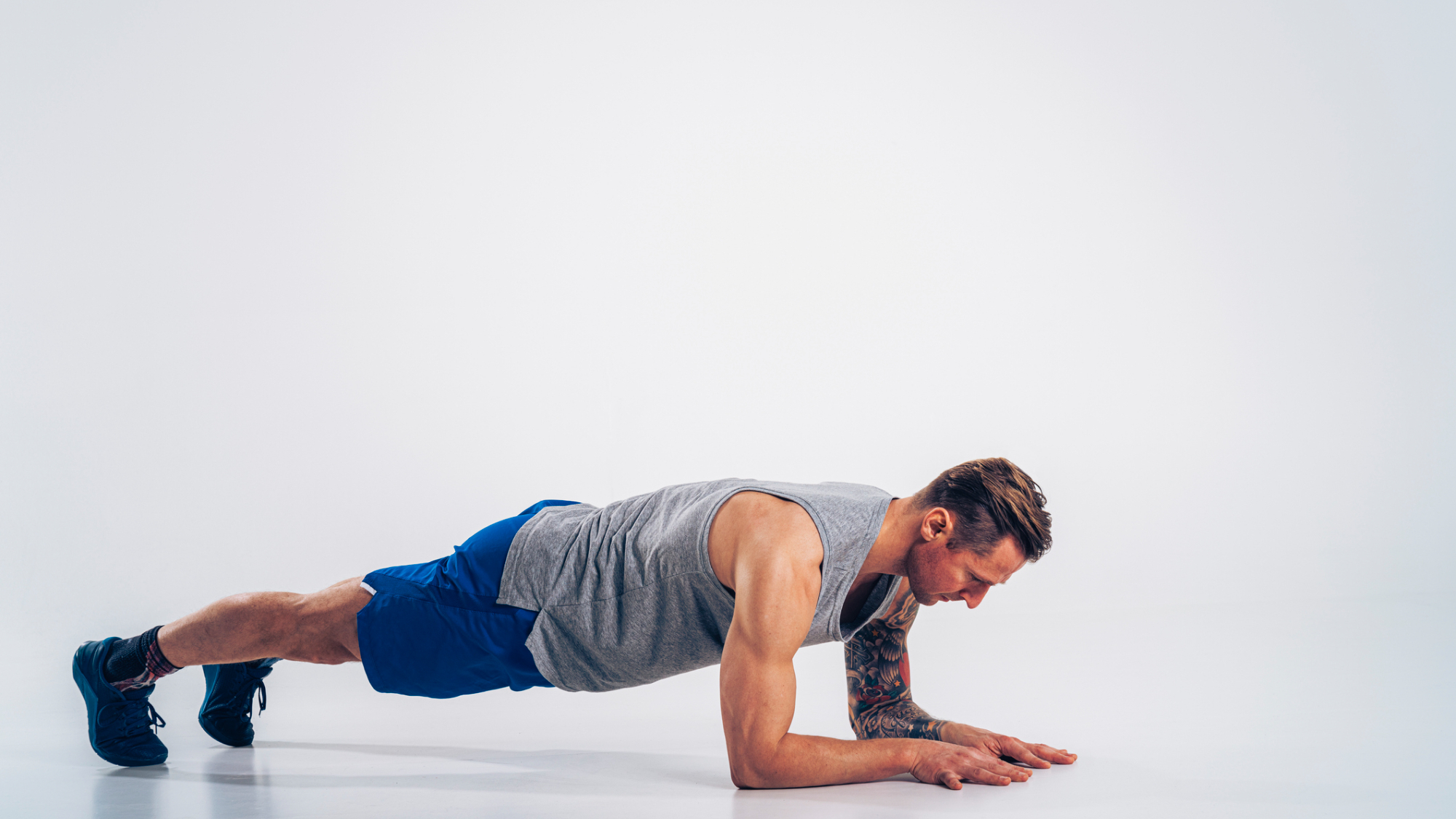
Sets: 3 Time: Max possible
- Start a running timer and assume a low plank position, supporting your weight on your toes and forearms. Brace your core. Your body should form a straight line from your head to your heels. Hold this position until you can't maintain it any longer without letting your hips drop.
If you don't own a set of weights but still want to give this workout a try at home, take a look at our tried and tested guides to the best adjustable dumbbells and the best kettlebells to find the right option for you.

Harry Bullmore is a Fitness Writer for Fit&Well and its sister site Coach, covering accessible home workouts, strength training session, and yoga routines. He joined the team from Hearst, where he reviewed products for Men's Health, Women's Health, and Runner's World. He is passionate about the physical and mental benefits of exercise, and splits his time between weightlifting, CrossFit, and gymnastics, which he does to build strength, boost his wellbeing, and have fun.
Harry is a NCTJ-qualified journalist, and has written for Vice, Learning Disability Today, and The Argus, where he was a crime, politics, and sports reporter for several UK regional and national newspapers.
